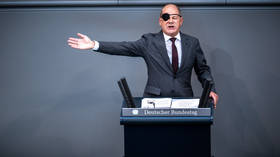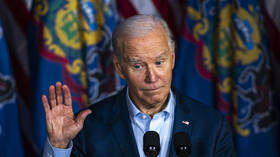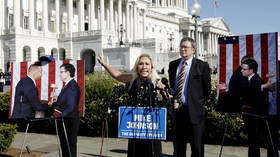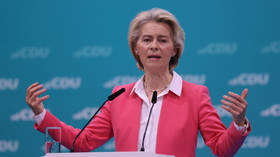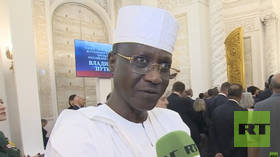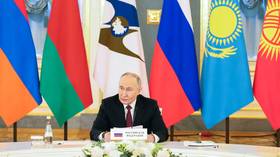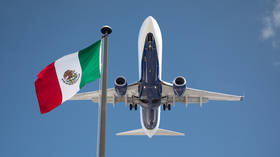Scholz hits back at ‘sick man of Europe’ jab
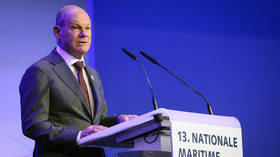
The German economy is weakening, but it does not deserve the nickname “the sick man of Europe,” Chancellor Olaf Scholz said in an interview released on Saturday.
Speaking to Welt am Sonntag, the German leader was asked to comment on an article in The Economist last month titled ‘Is Germany once again the sick man of Europe?’ The piece in particular slammed the country for slow economic growth, complacency, and bureaucratic conservatism while calling for urgent reforms and increased investment in business development and infrastructure.
The ‘sick man of Europe’ label originally dates back to the 19th century when it was applied to the Ottoman Empire, which was widely considered to be the continent’s economic and technological backwater. The Ottoman Empire collapsed following its defeat in the First World War.
However, Scholz pushed back against the criticism of what he called the “Anglo-Saxon newspaper.” According to the chancellor, The Economist disliked “the alleged German obsession with not taking on endless debt.”
“The text basically recommends taking on €100 to 200 billion euros of additional debt every year. But I say: No! Going into endless debt doesn’t solve our problems, but it creates new ones,” he stressed.
While rejecting the notion that Germany is in crisis, Scholz acknowledged that the country is “experiencing weak growth.” He blamed the development on the weakening of German export markets – especially China – while recalling that the country has been hit hard by high inflation and rising energy prices due to the Ukraine conflict.
Moscow, meanwhile, has repeatedly said that many of the EU’s economic wounds are self-inflicted, having been caused by the bloc's “illegal” sanctions over Ukraine.
Still, Scholz signaled that Berlin is doing its utmost to reinvigorate the national economy by betting heavily on renewable energy sources while insisting that authorities do whatever it takes so that “the jungle of regulations [is] cleared up.”
Last month, Germany’s Federal Statistical Office reported that the country’s economy stagnated in the second quarter of 2023 following a 0.1% decline in the first quarter. According to Statista, the German economy is projected to shrink by 0.11% in 2023 after growing 1.78% in 2022.
